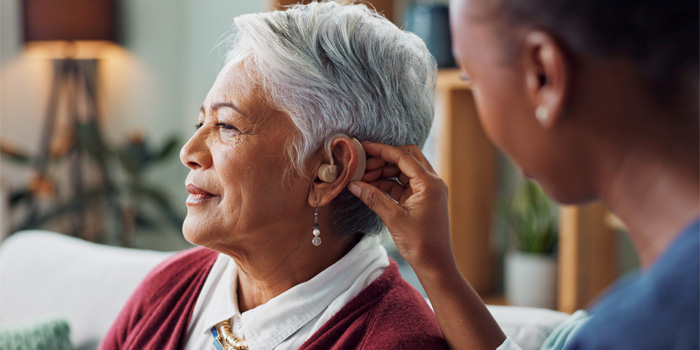When we think about hearing loss in older adults, it’s easy to focus on the obvious: the need to turn up the TV, missed phone calls, or the occasional “What did you say?” But the impact of untreated hearing loss goes far deeper, affecting emotional health, cognitive function, safety, and even relationships. For caregivers and home care professionals, encouraging regular hearing checks isn’t just a courtesy; it’s a critical part of holistic senior care.
Hearing Loss Is Often Gradual — and Overlooked
Unlike vision changes, which tend to be more noticeable, hearing loss often develops gradually. Seniors may not realize they’re missing key sounds, especially in noisy environments. Routine hearing assessments can detect issues early, enabling interventions that preserve quality of life and prevent further decline.
Cognition and Connection Go Hand in Hand
Studies have shown a strong link between untreated hearing loss and cognitive decline, including increased risk of dementia. When seniors struggle to hear, their brains work overtime to decode sounds, leaving fewer resources for memory and thinking. Hearing aids or other assistive devices can help reduce this cognitive load, enabling seniors to stay mentally sharp and socially engaged.
Isolation Isn’t Just a Side Effect — It’s a Risk Factor
Hearing loss can lead to withdrawal from conversations, group activities, and even family gatherings. Seniors may feel embarrassed or frustrated, choosing silence over struggle. This isolation can spiral into depression and anxiety. By addressing hearing challenges, caregivers help restore confidence and reopen doors to meaningful interaction.
Safety Starts with Sound
From hearing a smoke alarm to detecting a car approaching at a crosswalk, sound plays a vital role in personal safety. Seniors with untreated hearing loss may be at greater risk for accidents, falls, or delayed emergency response. A simple hearing check can be the first step toward safer living environments and peace of mind for families.
Empowerment Through Awareness
For caregivers, encouraging regular hearing checks is more than just following medical protocol; it’s about being an advocate. It’s about helping seniors feel seen, heard, and supported. Whether it leads to a hearing aid, a communication strategy, or just a better understanding of their needs, the benefits ripple outward: stronger relationships, clearer conversations, and a renewed sense of independence.
Whether you’re a family caregiver or a home care professional, prioritizing hearing health is a powerful way to show respect and care. It’s not just about what seniors hear, it’s about how they live.

